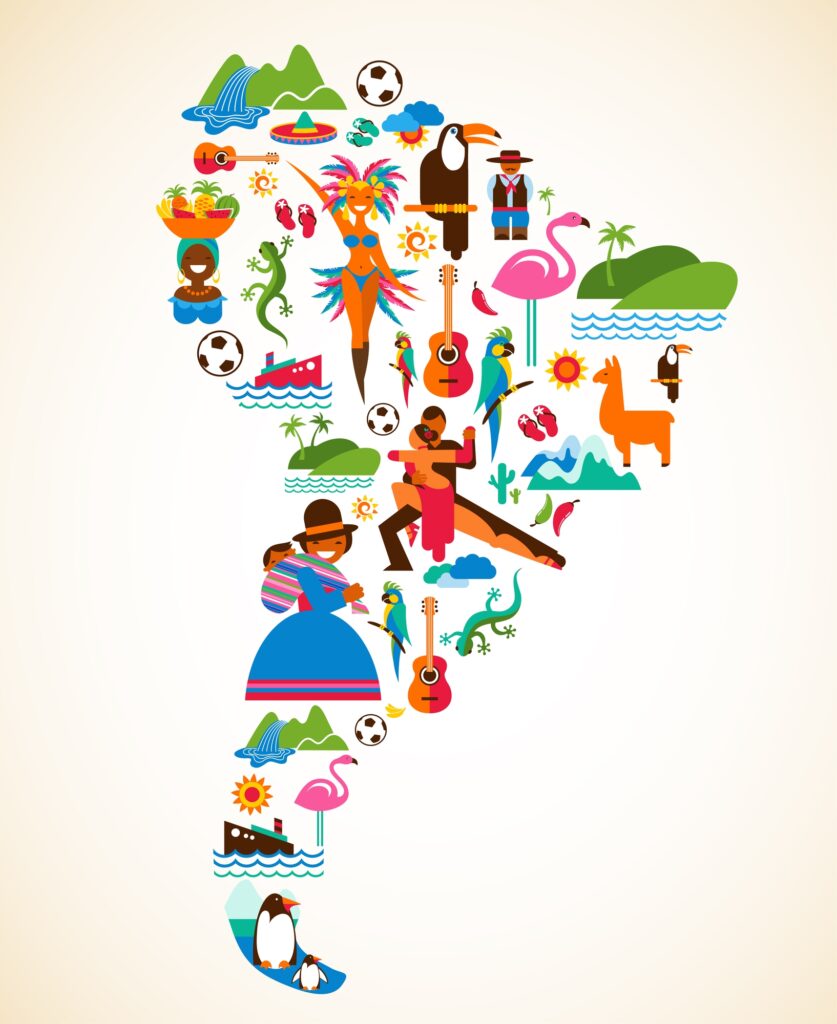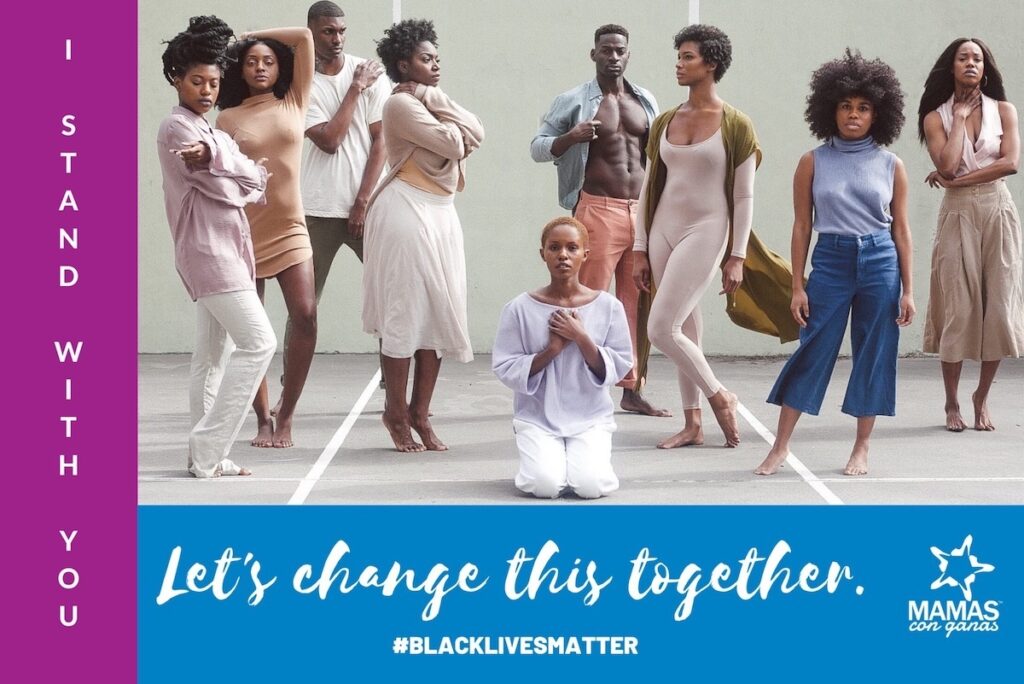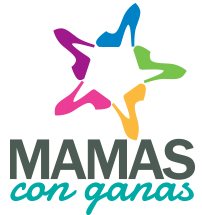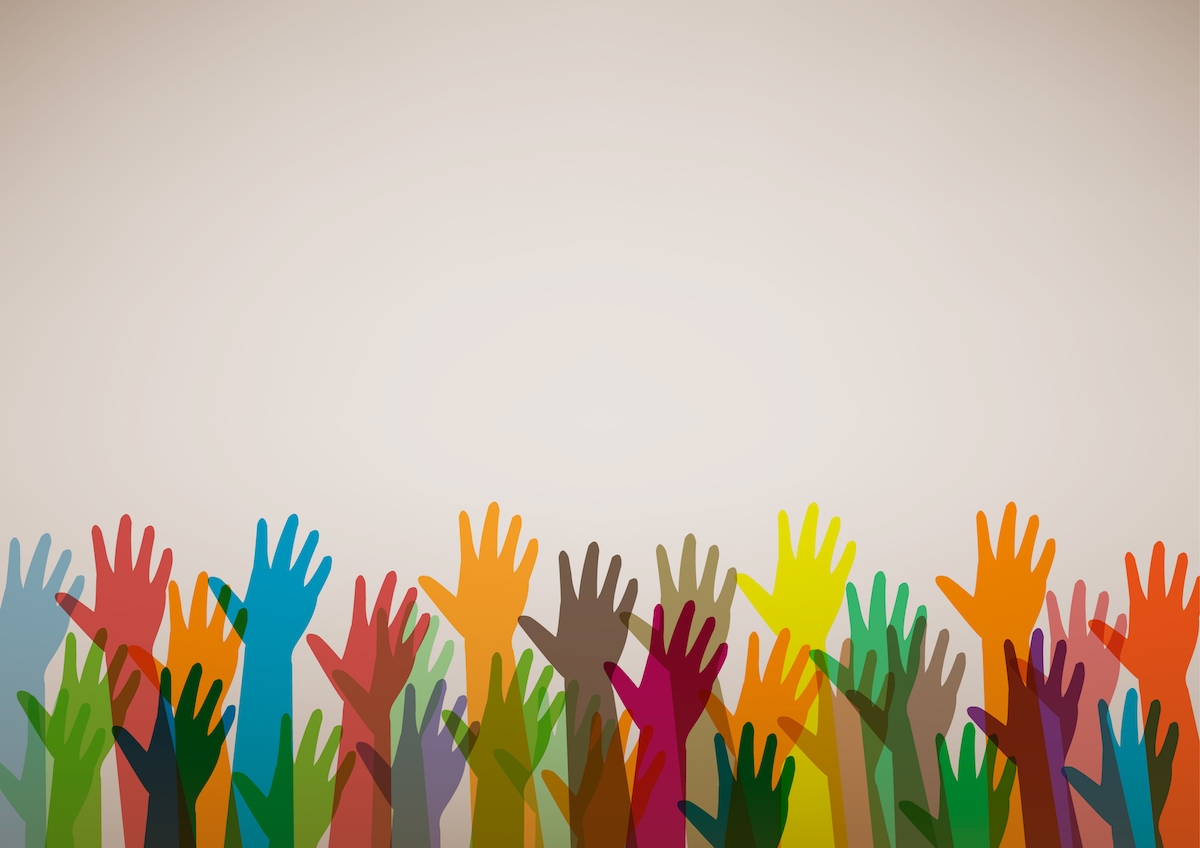In this week's podcast episode I interview Jean Muteba Rahier, professor of Anthropology and African & African Diaspora Studies at Florida International University. Professor Rahier talks about the history of racism in Latin America and educates us on the recent social movement to give visibility and equal rights to Afro-descendants in the region. Professor Rahier is also the director of OJALA, the Observatory of Justice for Afro-descendants in Latin America. OJALA’s mission is to protect Afro-descendants in Latin American from discrimination and racial inequality by empowering the legal systems in the region with workshops, research studies and a virtual database of legal cases and knowledge surrounding race.
Listen to the episode here 👇🏾👇🏿👇🏼
Let's talk about race
Yes, I'm addressing the elephant in the room. I'm openly discussing racism and how it negatively impacts our world and particularly my Latin culture. Many in Latin America argue that racism doesn't exist. Our denial is actually why it's so hard to talk about it openly. How can you bring about change when people deny its mere existence?
It's like trying to work on being altruistic when you're blind to the fact that you are selfish sometimes.
I have always felt passionate about my repugnance for racism and other types of prejudice that exist in our world. Ask my parents, I'm always the one at parties to call people out on their inappropriate racist, sexist or anti-semitic jokes. Say one of those jokes around me and I immediately become “Debbie Downer” proudly and unashamedly. Ever since I was a little girl I have had absolutely no tolerance for humor that demeans another individual, even if that means embarrassing someone publicly for their indiscretion. In high school I was even part of an after-school club that promoted diversity and and some of my dearest friends are in fact black.
Still, that doesn't make you bullet proof for ignorance or partial denial.
I admit I was a bit naive about the topic of racism in Latina America myself–not about the fact that racism existed in my culture but about the severity of our denial as a whole. Plus, I thought we were more enlightened on the subject than North America. I know, how cocky of me. I even had an argument with a friend once on how racism in Latin America was “much less severe” than in the United States. We never had Jim Crow laws or hate groups like the KKK, I told my friend. Plus, I argued we were pretty much all “mutts” in Latin America, myself included… well most of us.
Now, as I ponder over the insights I've learnt from this week's episode, I can't help but think about my mixed ancestry. It conjures up a myriad of sentiments. My sister did a DNA test recently and it revealed that on my mother's side (because women only get results on their maternal lineage due to only having XX chromosomes) we are roughly 54% Spaniard, 20% Venezuelan Ingenious, 11% African, and a percentage or two of a mix of other things.
In the process of educating others I educated myself
Ever since the topic of race hit the mainstream I addressed the subject. I knew immediately I wanted to interview an expert on the subject–not someone who would throw more opinions on an already saturated discussion. I was looking for someone who could enlighten my audience with education, knowledge and a historical context on racism in Latin America .
I spent a week researching someone ideal to interview for this podcast on racism in Latin America. I'm happy to report that I found just the person, Professor Jean Muteba Rahier of Florida International University.
Professor Rahier has spent his life researching racism and racial inequalities in Latin America. He has written numerous books and countless papers on the subject.
He is also the director of OJALA, The Observatory for the Justice of Afro-descendants in Latin America.
Honestly, Professor Rahier has a wealth of knowledge on the topic and I could spend hours interviewing him. Each country in Latin America has its own complicated relationship with regards to race, pigmentocracy and racial inequality.
However, I could only cover so much in roughly an hour episode so he could only share with us a general overview of the systematic racism prevalent throughout the Americas.
There's a lot to learn. Here are a few insights.

An education on racism in Latin America
First of all, racism is as prevalent in Latin America as are arepas, enchiladas, ceviche, asado, dulce de leche, mondongo and frijoles negros (no pun intended).
Second, ever since the independence of the Americas from our Spaniard colonizers, we've been spoon fed this “ideal monocultural identity” of Mestizaje which is one of the reasons we deny the existence of racism in our cultures in the first place.
Basically the newly formed countries, in order to differentiate themselves from their Spanish heritage, needed to create new national identities. Consequently, they created a monocultural identity based on the mix of European descendants with the indigenous population in their respective country. Never mind the inclusion of non-mixed indigenous populations or Afro-descendants in the creation of these “ideal monocultural national identities”. The latter groups were essentially marginalized and invisibilized.
Third, pigmentocracy or a hierarchy of social status based on the tone of your skin is very real in Latin America. As long as the racial mix includes European and some indigenous you are ok and can consider yourself a part of the country's respective “ideal national identity”. Of course, the more European ancestry, the better. Furthermore, indigenous and African features are still not considered the most ideal or the most aesthetically pleasing. Hence, the desire for a whitening of the race or “blanqueamiento de la raza”.
You might have heard the common argument: “How can you say we are racist in Venezuela, Cuba, Dominican Republic, Colombia, etc (fill in the blank) if we all have a bit of indigenous or African blood?”
Racism in Latin America is blanketed by the pursuit to whiten or “better the race”. “Mejorando la raza” is a common saying amongst all Latin American countries. God forbid you marry darker and worsen the race (“empeoras la raza”).
The truth hurts, I know.
Fourth, it's not until the 1980's and increasingly in the 1990's that the Afro-descendants in Latin America start to gain visibility by the introduction of multiculturalism through the passing of anti-racial laws throughout the region. We might not have had Jim Crow laws as instruments of segregation via the written law but customary law very much kept the Afro-descendants in our Latin American countries marginalized and oppressed.
Ironically, the introduction of these anti-racist laws were in part incentivized by the countries seeking loans from International organizations like the IMF, Unesco and the UN who were funding different programs in the regions by the 80's and 90's.
Side note: people say money is evil but I say it all depends in the hands of whom. In this case, these world organizations were the ones to incentivize Latin America to adopt multiculturalism and anti-racial legislation.
Fifth, racism, no matter the degree of severity implied, is detrimental to our society. As Latin Americans our history with race is also marred with pain, shame and injustice.
But don't take my word for it, listen to this week's podcast and learn from Professor Rahier himself.
If you're still in denial about racial inequality in Latin America…
Here are some books Professor Rahier recommends if you want to learn more on the topic of racism in Latin America:
-Wade, Peter. 2017. Race and Ethnicity in Latin America. London: Palgrave Macmillan.
-Telles, Edward. 2014. Pigmentocracies: Ethnicity, Race, and Color in Latin America. Chapell Hill: The University of North Carolina Press.
-Rahier, Jean Muteba. 2014. Kings for Three Days: The Play of Race and Gender in an Afro-Ecuadorian Festival. Urbana: University of Illinois Press.
-Wright, Winthrop R. 1993. Café con leche: Race, Class, and National Image in Venezuela.
-Prevost, Gary, Esteban Morales Domínguez, et al. 2012. Race in Cuba: Essays on the Revolution and Racial Inequality.
How can you help fight racial inequality in Latin America?
You can start by eliminating racist words, such as “mulato,” from your vocabulary altogether. Did you know that the origin of the word stems from the comparison of a person of mixed race to a mule?
So no matter how a salsa song might use the word, it is unfortunately not a term of endearment.
You can also help by donating money to organizations like OJALA (The Observatory for the Justice of Afro-descendants in Latin America).
OJALA is at the forefront of creating positive legislative change for Afro-descendant communities in Latin America by building a repository of legal cases and relevant archives regarding racial discrimination. With the gathering and sharing of this digital library and accumulated knowledge, they can empower legal entities to promote human rights for Afro-descendants and their “right to live in a society free of anti-black racism and discrimination”. (Scroll down for instructions on how to donate.)
I believe racism can be eradicated by a collective effort of people from different races. It is not solely the burden of the black community. Just like sexism can be eradicated by the collective effort of men joining women in the pursuit of gender equality.
So join the collective effort, mamacita. Let's make this world a better place for the generations to come.
As I like to put it… Don't be a mama con drama. Let's be Mamas Con Ganas! 💃🏻💃🏿💃🏼💃🏽
Besitos,
Valentina
#inspiredmamacita

P.S. Don't forget to share your take aways and insights from our episode on the comments below.
Instructions for OJALA donations
1) Go to the website of the FIU Foundation at https://give.fiu.edu/give-now/index.html
2) Scroll down and below the “Give Now” sign, click on “Steven J. Green School of International and Public Affairs”.
3) Once on that page, go to the drop down menu box called “Designation” towards the middle of the page and choose, on the drop down menu, “LACC.”
4) Enter the credit card information and click “Donate.”
5) Send an e-mail to Professor Jean Muteba Rahier at <jrahier@fiu.edu>. [This last step is important for the donation to reach OJALA. (OJALA exists within a larger center called Latin American and Caribbean Center-LACC)].
Thanks for your support!
P.P.S. Interested in breaking the cycle of racism from your family altogether? Listen to our episode with Life and Relationship Coach, Melanie Clark. As a mother you have immense power and influence over your kids. Let's use that power to instill love, tolerance and diversity in our children. Click here to listen.




